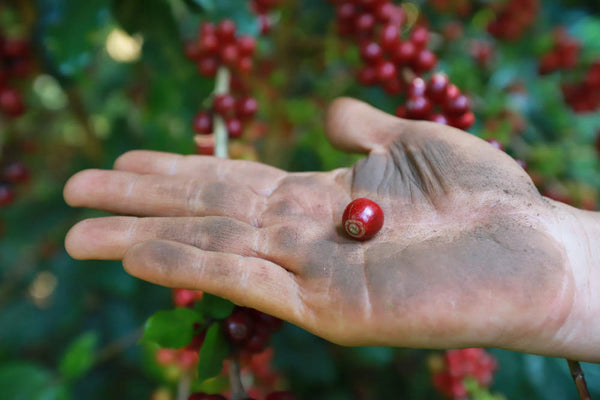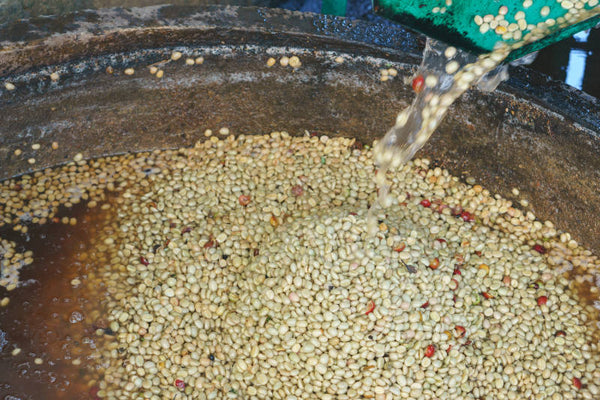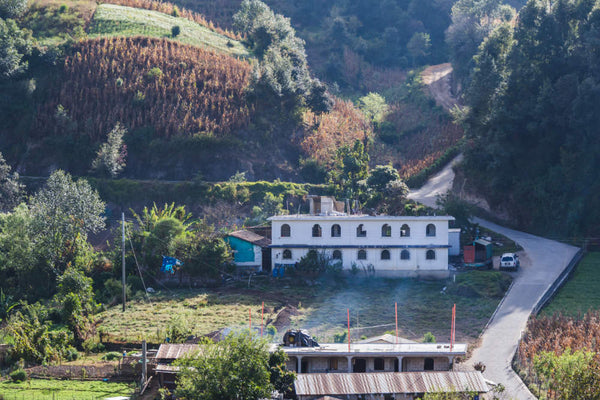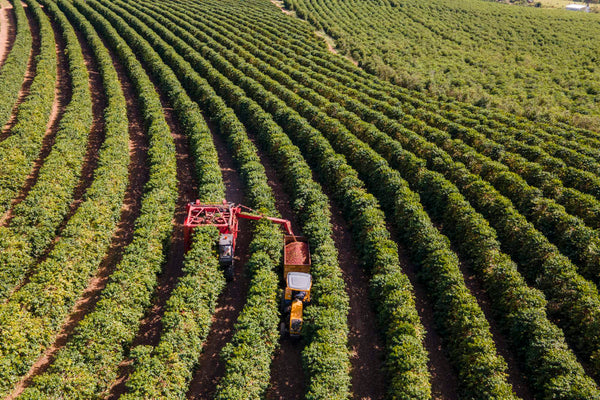After the 2001 collapse in coffee prices, most major farms in Guatemala shifted to crops such as macadamia, avocado, sugarcane, and bananas. Nowadays only smaller farms cultivate coffee beans, however, they are less secure against economic or natural calamities - such as a pandemic. The difficulties for producers multiply each year and it is becoming increasingly difficult for them to survive.

In this article, you will learn how farmers deal with crises.
Farmers problems
Guatemalan farmers face an uncertain future due to the effects of climate change. Growing coffee in this coastal country is already difficult, as harsh hurricanes are a yearly occurrence that devastates crops. But with climate change intensifying natural disasters, plantations become increasingly vulnerable and susceptible to disease or death. To combat these issues, Guatemalan farmers must develop innovative solutions with resilience and determination if they want their businesses to survive in the future.
Faced with the 2012 coffee leaf rust outbreak, farmers have attempted to find a satisfactory solution on their own. While they've reduced the number of shade plants which are more prone to disease, many still choose to maintain them since it promotes a complexity in taste and acidity that chemical fertilizers cannot replicate. At Las Delicias farm for example, natural fertilizer has proven successful as an alternate method of protecting coffee from rust - showcasing that there can be safe alternatives during these difficult times. Source.
Farmers want to achieve maximum efficiency, so they select the processing approach that best matches their local conditions. For example, in Guatemala with its unpredictable coastal climate, the honey method is ideal as it does not require open-air drying on African beds or expenditures for fermentation tanks. In contrast, other methods like natural and washed have more exacting requirements such as dry weather and plenty of water respectively - making them more expensive or difficult to execute.

Low prices on coffee
Coffee farmers are facing a dismal reality, with low prices that can't even cover their basic costs, let alone factor in the expense of new technologies or management. This leaves them unable to focus on quality cultivation and must instead turn their attention toward administrative matters such as working with partners and cutting production costs.
Thanks to the wonders of the Internet, promoting beans to farmers has never been simpler. Thirty years ago, it was a difficult task just locating dependable partners from abroad. Nowadays, however, modern communication technology makes sustaining relationships with customers far easier and enables us to remain resilient in trying times when coffee prices go up, like during a pandemic.
Farmers are cutting down their production costs. They created their processing station to recycle the water used in the process, slashing expenditure on an expensive factory set-up. Not only did this save them money, but it enabled them to reuse and conserve more water in their plantations as well!
Small farmers values

Small farmers are often compelled to alter their crops for both private use and sale due to the unsteadiness of price. This is especially important for farms with no access to specialized markets or those that do not have suitable conditions, leaving them strapped financially and without dependable partnerships. Unfortunately though, even after taking all these steps by producers, it isn’t enough – they require external support such as non-profit organizations and investors to experience an economic surge.
Many farmers are unaware of the value of developing production quality, and as a result, they tend to send their entire crop off to an exporter. The problem lies not just in the lack of professional skills but also in ignorance regarding how product quality is evaluated. Fortunately, some organizations help these farmers further hone their abilities so that they can improve both yield quantity and high-grade coffee.
Currently, there are organizations devoted to providing farmers with the necessary training and resources they need to maximize their production investments.
Social responsibility programs
As the largest national coffee association, Anacafé represents producers from all over the country in international markets and issues export permits. With its extensive reach, it continues to be a powerful example of successful regulation for global trade. The association also monitors how the rights of farmers are respected at the state level. For instance, Anacafé collaborates with the Foreign Affairs Ministry of Guatemala to effectively showcase their country's coffee industry at international events such as Expo Dubai. Moreover, Anacafé also has several programs in place dedicated to educating farmers on improved farm administration abilities and innovative processing techniques.
Since 1994, Fancafé's non-profit division of Anacafé has provided support to farm workers in health, education, and nutrition. With no one else to look after their children, many parents were forced to bring them along with themselves on plantations - an issue that Fancafe is now taking measures against by opening schools and offering kids learning contests in rural areas across the globe. As a result of these actions taken over the past two decades, 940 000 people have benefitted from their educational programs!
McDonald's initiated the corporate social responsibility program, TechnoServe, to enlighten farmers on how to employ current farming techniques and enhance yields. For instance, a San Martin Jilotepeque farmer significantly grew his coffee production by just trimming some plants and planting new ones. The results of this project were extraordinary! By 2017, participants had seen an increase in their yields of 45%, with profits likewise increased by 35%. What's more remarkable is that throughout these five years since its commencement, 15,000 agriculturists have taken part in it!
Guatemalan Young Entrepreneurs in Coffee (GYEC) have joined forces to explore the issues of Guatemala's coffee farms and generate ideas for their advancement. Moreover, they are dedicated to engaging young people in production as this is an essential step towards tackling the issue of farmers aging population. GYEC views itself as a pivotal part of guaranteeing a successful future for Guatemala’s coffee industry, committing time and effort to its growth.
The need for social projects is on the rise in Guatemala and will have a major impact on coffee production, both improving its quality as well as efficiency. As these initiatives gain momentum, it has the potential to revolutionize the Guatemalan coffee industry altogether.
Future of Guatemalan coffee

To ensure the growth of Guatemala's specialty coffee industry, vocational education and knowledge exchange on agriculture practices must be promoted. This is critical for producing quality beans to satisfy consumer demands in a saturated global market. Moreover, investments are needed in research and development that focuses on improving growing processes from seed selection to post-harvest handling. With these efforts put forth, we can anticipate an innovative future for Guatemalan farmers where they will create sustainable businesses with increased profit margins while providing consumers with superior coffees.
Guatemalan farmers can't tackle their issues without assistance. Thus, aiding social initiatives by NGOs and big corporations is integral if they are to attain improved outcomes. Investing in crop production will raise the earnings of small growers while at the same time enlarging Guatemala's GDP - coffee alone accounts for 14%. With a bit of help from external forces, Guatemalan farmworkers have an opportunity to progress both economically and socially.
Through the collective dedication of farmers and organizations alike, coffee can remain the revered national treasure of Guatemala amid all its struggles. With their involvement and enthusiasm, a brighter future is within reach for this beloved bean.

